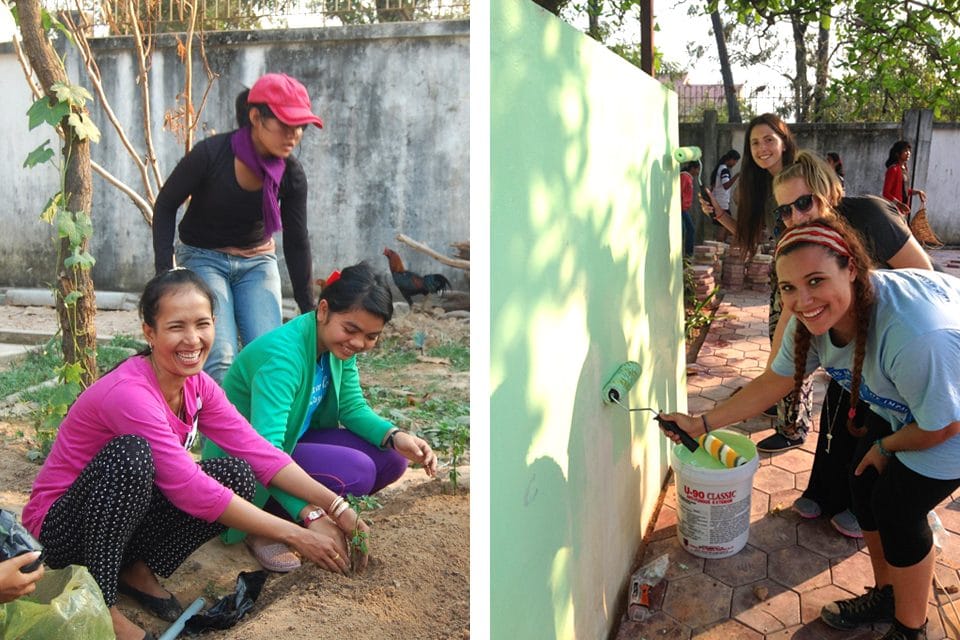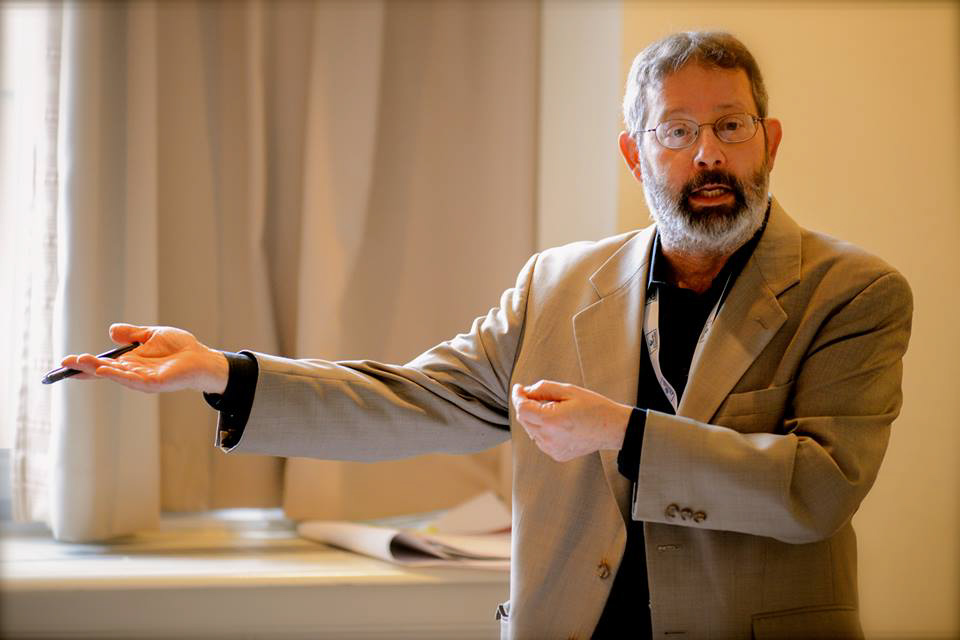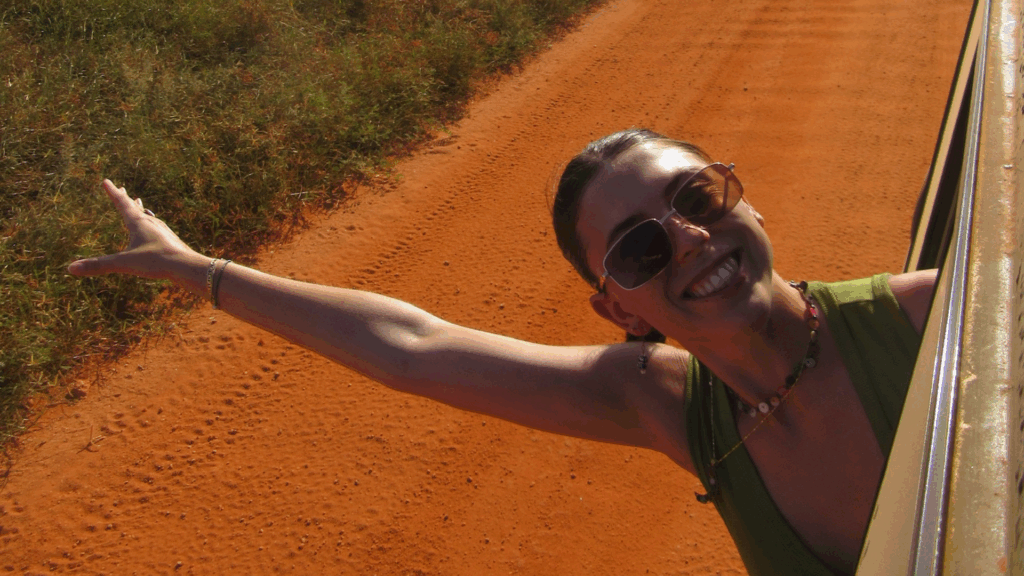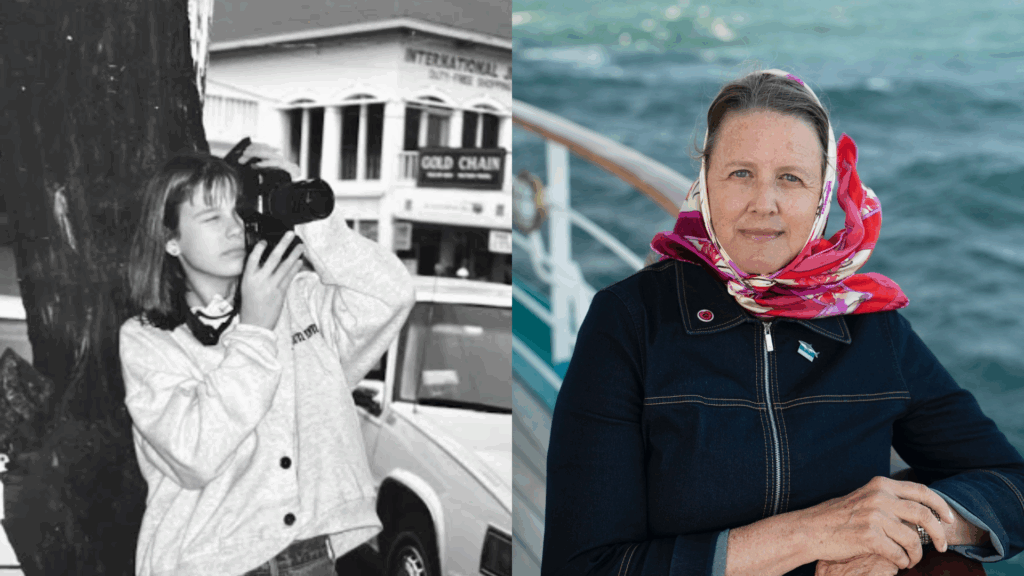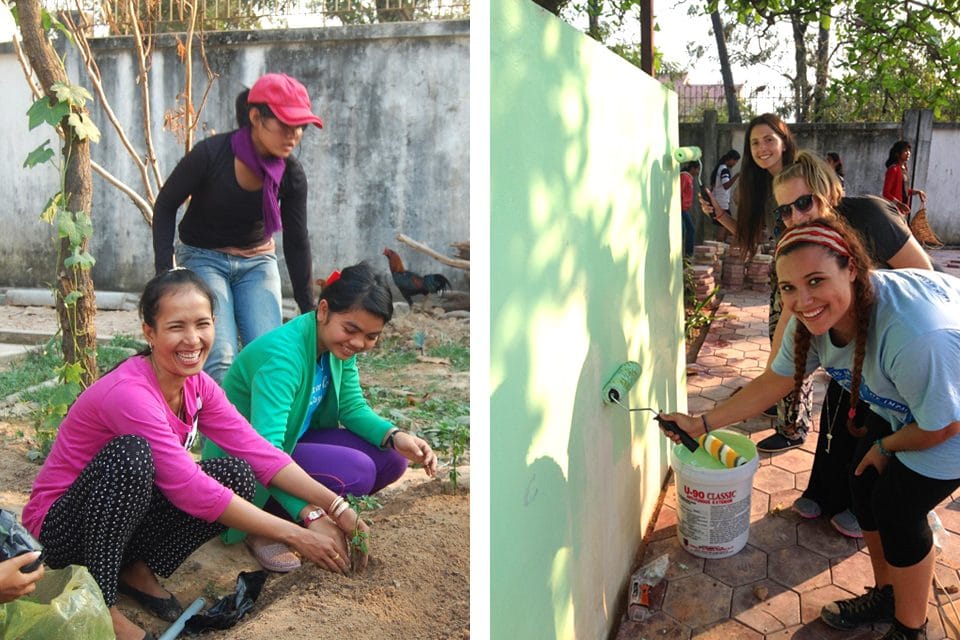
Sea Sophal, the school’s founder and guide, shared the itinerary and goals for the day when the students arrived at the school. “He said, ‘we’re going to paint a kitchen, plant the garden, plant trees, move bricks, and play a volleyball game!’¬≠ all in two hours,” said Christine Mahoney, trip liaison and Associate Professor of Politics and Public Policy at the University of Virginia. “I thought there was no way this was going to happen, but as soon as we arrived they were so well-organized and everything was ready to go.”
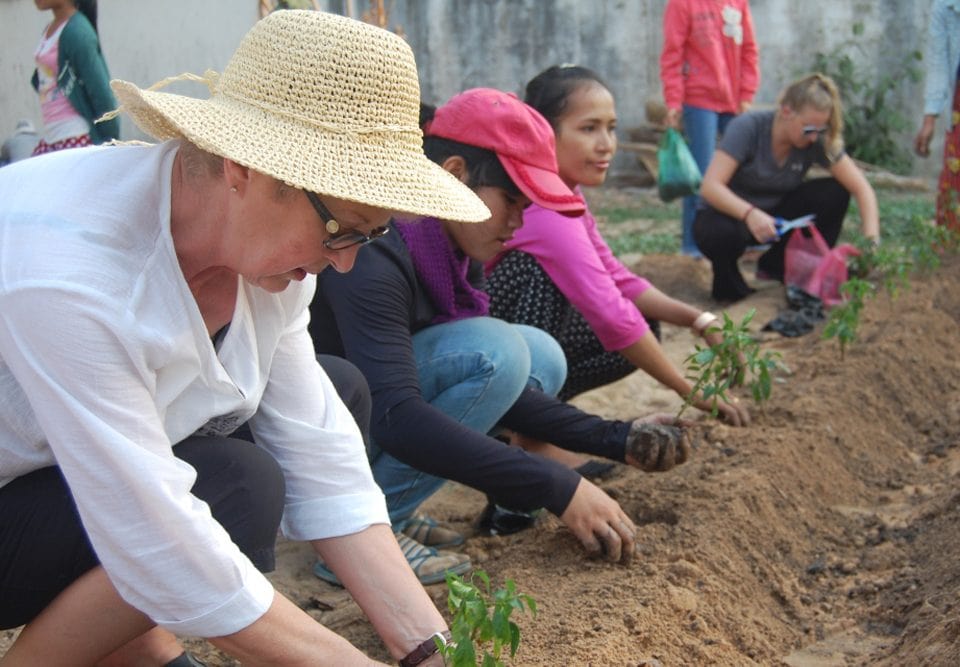
As one of Semester At Sea’s many IMPACT opportunities, SASers were there to help make the school more sustainable and open for future visitors. Completing the new kitchen not only would help the school add variety to its daily menu, but the larger space would allow the school to host other foreign visitors to teach cooking classes and speak English with the girls. Planting the vegetable garden would also show the girls how to cultivate and grow their own food ‚Äì an important part of living sustainably.
Strategically situated next to the area’s main public school, the Leadership School is a unique entity that offers young women from rural Cambodia a chance to receive an education, along with supplementary leadership training in a place where girls often lack such opportunities. Without receiving housing through the Leadership School, Mahoney explained, these girls would live too far away to be able to go to the regular school.
Sophal decided to start the school after serving in a Buddhist monastery. He noticed that poor families who couldn’t afford to pay for their children’s education would often send their sons to study at the monasteries ‚Äì but there were no options for girls to get an education.
After drawing support from multiple international sources, Sophal was finally able to make his vision a reality and open the school to students.
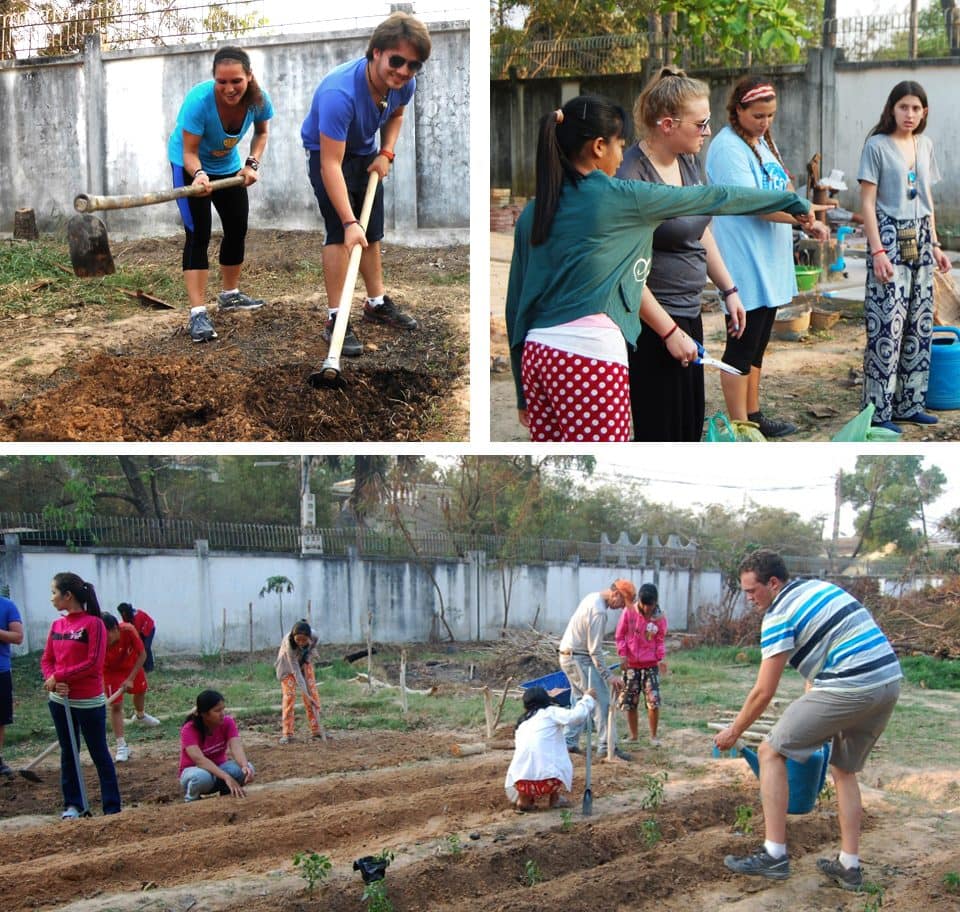
“It was remarkable. So often in service trips you get there and bumble around for an hour,” but according to Mahoney, this was a different experience. By the end of the day everyone felt so accomplished. “[Students at the school] look forward to more visits by SAS students for cultural exchange in the future.”
After just an hour of working, the group had already completed every task with just one thing left on the schedule: a volleyball game. As teams began to form, students from SAS and the Leadership School took the opportunity as a chance to intermingle for some language practice and friendly competition.
During their visit, SAS students also distributed indestructible soccer balls from One World Futbol, Global Grins toothbrushes, and Start Something That Matters, a book written by TOMS founder Blake Mycoskie.

The cultural collaboration created an impacting experience for both the SAS and Cambodian students alike. As they worked and played side by side, the two groups of young adults were able to gain a fresh insight through the eyes of new friends living halfway around the world.
Mahoney reflects on the field program as a whole:
Although we saw a lot of depressing sights in the country, the trip was hopeful. We saw the killing fields, the torture museum, and a lot of poverty; but then you meet such a driven entrepreneur like Sophal who has built this school with a huge vision. And you meet these girls with these smiling faces that come from rural villages who, had it not been for this school, would have been limited to agriculture for their whole life. The SAS students were excited to volunteer, and it was really hopeful to do in Cambodia.
